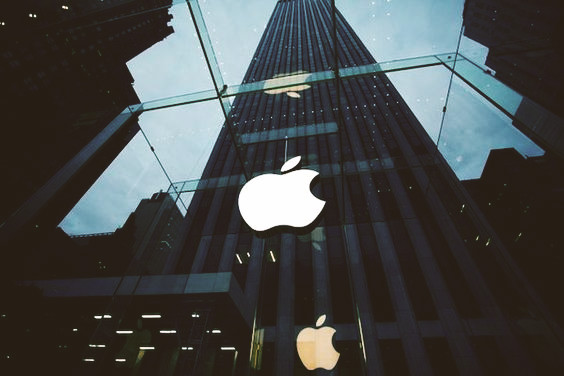Apple’s €13 Billion Tax Defeat Rocks EU Tax Haven Debate

Apple’s Tax Battle – €13 Billion Loss Fuels EU Tax Haven Storm!!
The European Union’s highest court has delivered a critical judgement in Apple’s tax battle, ruling that the company must pay a €13 billion tax bill. The European Court of Justice (ECJ) issued its final decision on Tuesday, 10 September, a ruling that experts say strengthens claims that Ireland operates as a ‘tax-safe haven.’
(Also read Breakthrough in Dublin Hit-and-Run Case as Teenager Arrested.)
The dispute started in 2016 when Apple, which has its EU headquarters in Cork, was forced to refund €13 billion by the European Commission. The Commission argued that Apple benefited from tax reductions under Irish law, which violated EU state aid rules.
Apple’s Tax Battle Comes to an End
Irish rulings from 1991 and 2007 had “artificially” lowered Apple’s tax burden, said the Commission, sparking the lengthy legal saga. Apple and the Irish government both appealed the decision, arguing that Ireland was not a tax haven and that Apple received no special treatment.
2020 saw the EU General Court overturn the Commission’s decision, ruling in favour of Apple and Ireland. However, the Commission did not accept the verdict and brought the case to the ECJ. On appeal, the ECJ overturned the General Court’s ruling, upholding the Commission’s original €13 billion decision.
The funds in question, sitting in escrow since 2018, will now be returned to the Irish government.
A Landmark Win for the European Commission
Competition Commissioner Margrethe Vestager hailed the ruling as a “big win for the Commission, for European citizens, and for tax justice.” She stressed that the ruling upheld fairness in the internal market’s competitive environment.
But Apple voiced dissatisfaction. “We are disappointed with today’s decision, as the General Court had reviewed the facts and categorically annulled this case,” an Apple official noted.
Ireland also expressed frustration, maintaining that it does not offer preferential tax treatment to any companies. A spokesperson from the Ministry of Finance reiterated that Ireland would respect the final ruling, noting that the laws in question are no longer in effect.
Is Ireland an EU Tax Haven?
The ruling may further fuel the argument that Ireland is a tax haven for US Big Tech. In 2019, former MEP Paul Tang made the suggestion that Ireland’s high levels of foreign direct investment are frequently used to take advantage of legal gaps in tax laws.
Apple was accused by the European Commission of keeping revenues made in the Middle East, Africa, and Europe at its tax-free headquarters in Ireland. By 2014, Apple’s tax rate in Ireland had fallen to as low as 0.005%.
Apple has consistently denied these claims, pointing to the 2020 General Court ruling that supported its position. The tech giant also stated that it pays taxes in the United States and is one of the largest taxpayers globally.
In 2017, following the US Tax Cut and Jobs Act, Apple repatriated €221 billion of foreign profits and paid €34 billion in taxes to the US government.
The End of an Eight-Year Saga
Apple’s tax battle has now come to an official close, with the ECJ ruling in favour of the European Commission. The decision marks a significant victory in the EU’s efforts to combat tax avoidance by large multinational corporations.
Ireland, however, insists that the judgement relates to outdated laws and that it has since introduced reforms to its tax system. Experts say the ruling could reshape how EU countries offer tax breaks to multinational companies, potentially limiting “sweetheart” tax deals in the future.
The decision underscores the EU’s broader challenges in regulating multinational corporations and ensuring fair competition across member states. The long-running saga has now ended, but the implications for corporate taxation in Europe will likely be felt for years to come.
LATEST NEWS
DISCOVER MORE






